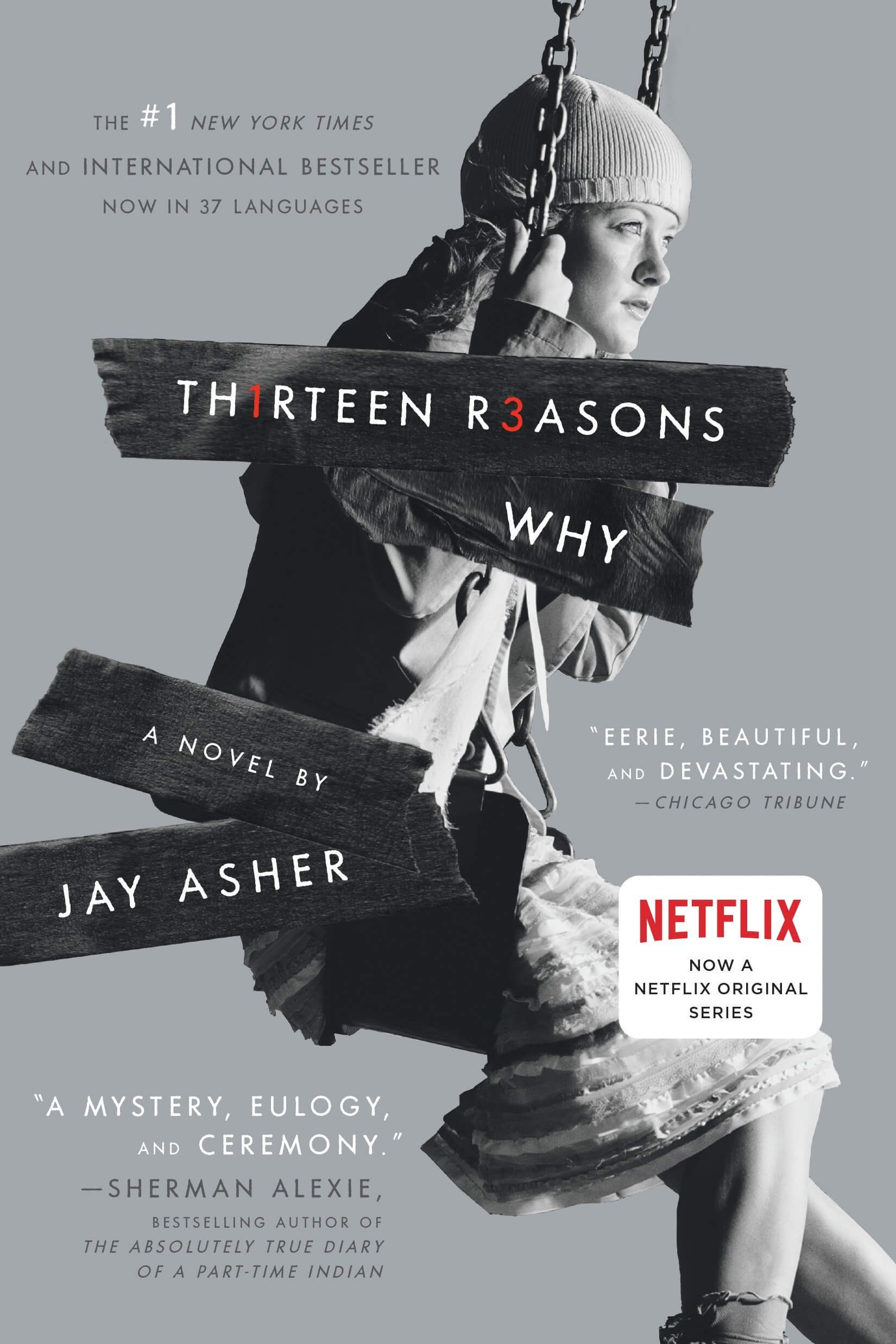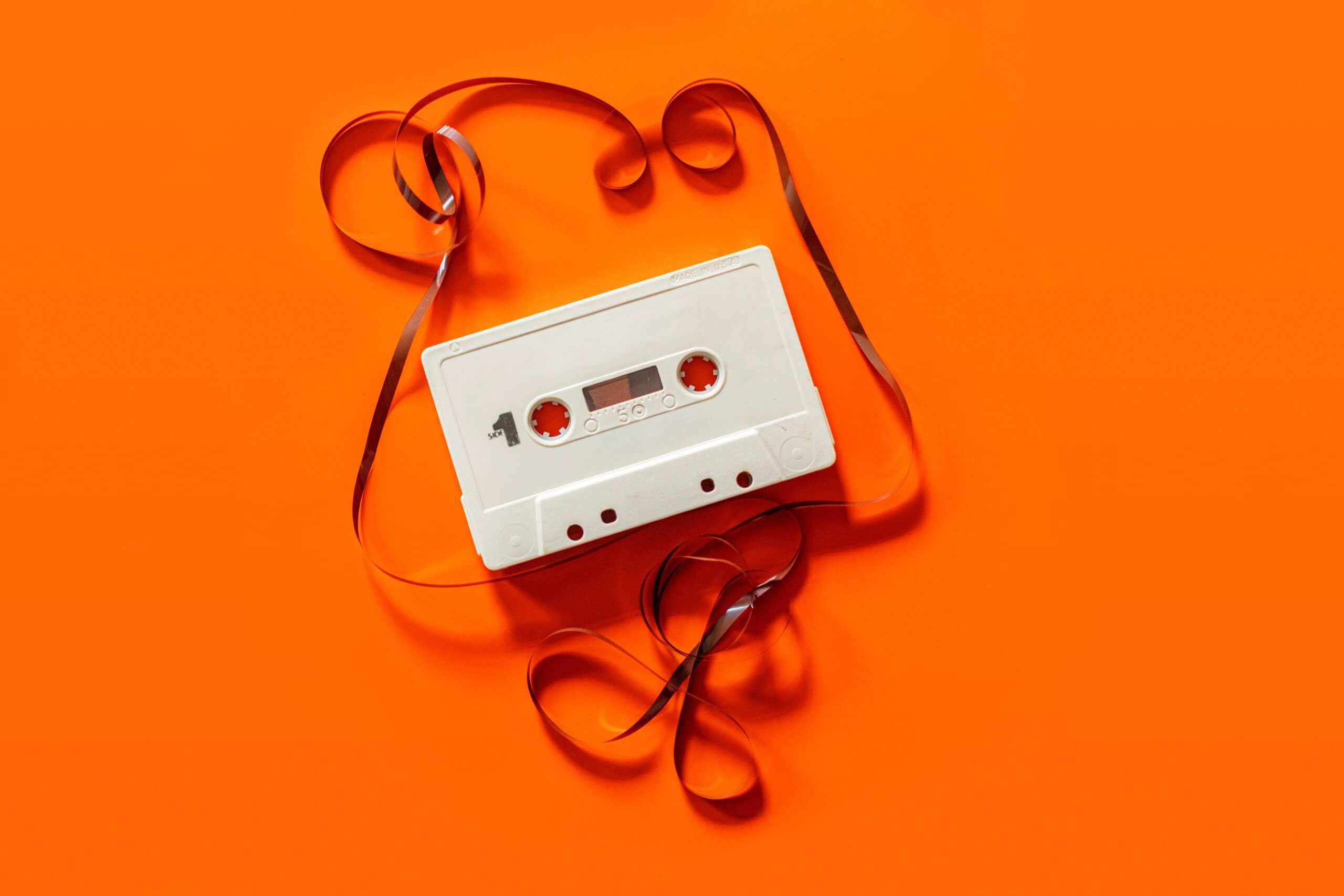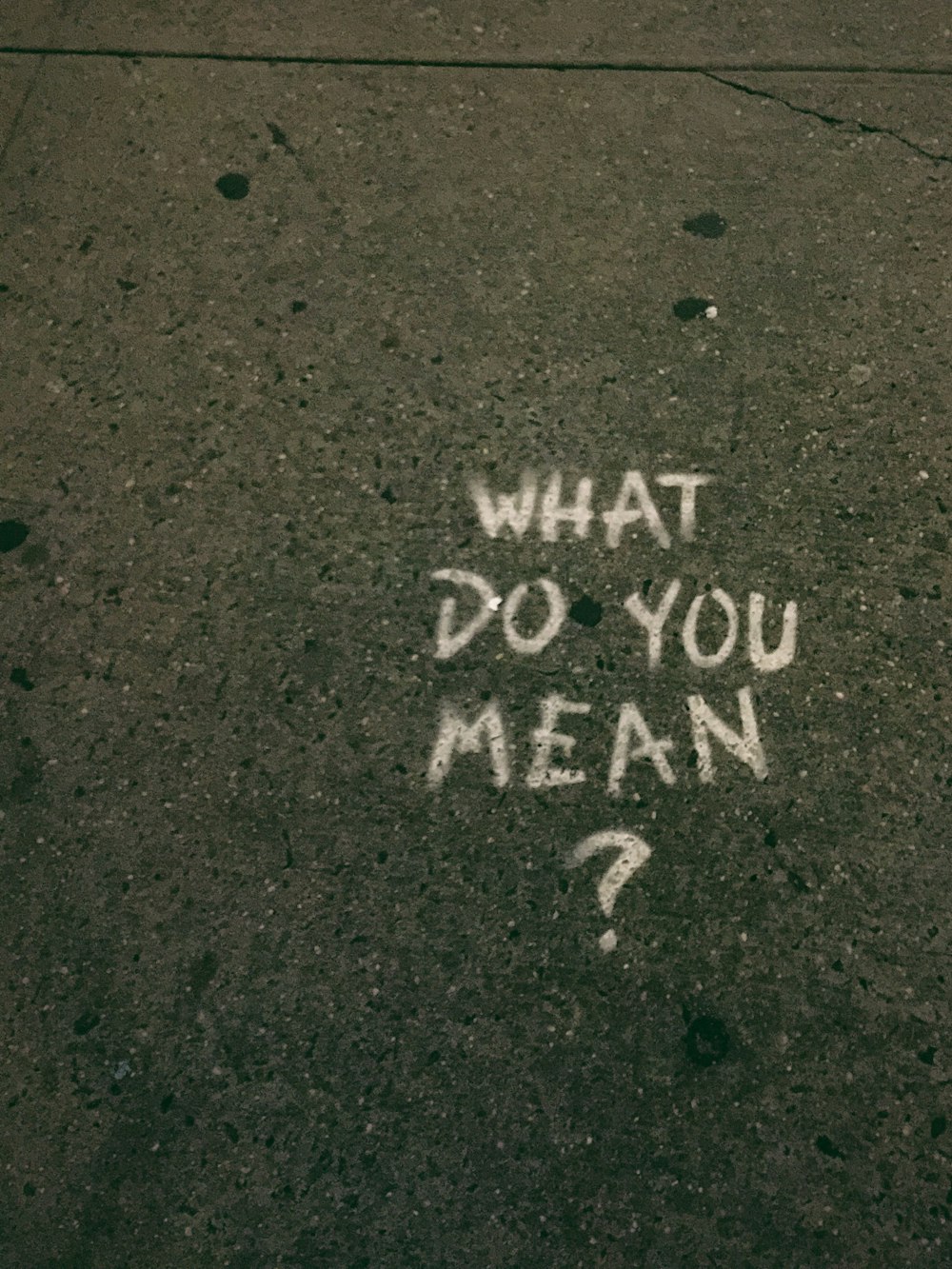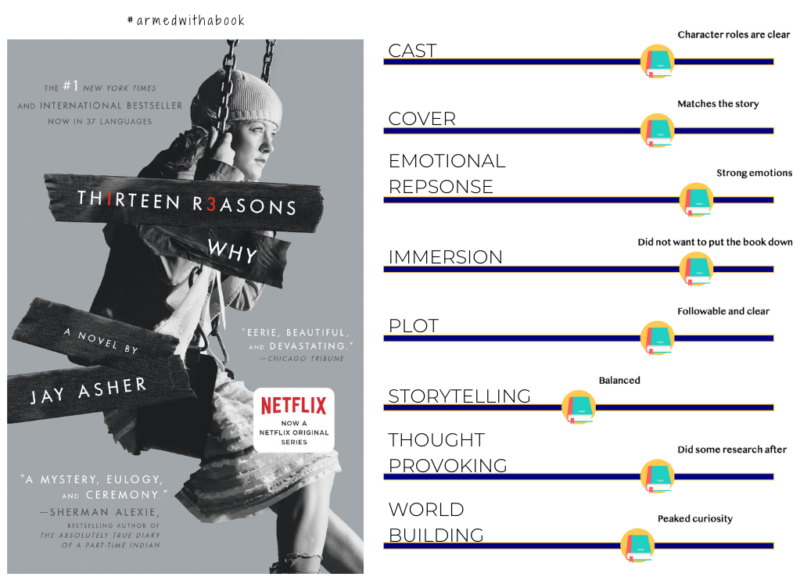Thirteen Reasons Why is not a story for everyone. Centered around the tapes that a high school girl left for her peers after she committed suicide, and with assault being a part of the story, it is quite obvious even from the synopsis that this would be a hard one to read. Fast-paced, yes, because who wants to stay in the continuous cycle of guilt and bad things that happened, I read this book probably in two sittings when I picked it up in 2012. But as a teenager, I did not think much about what it meant or the message it was trying to give. The Netflix show (I only saw season 1) helped a bit but book blogging and thinking deeply about books in the last couple months has made me pick this book up again.
This is a hard topic and if you would rather not read a book that is traumatic with reference to suicide, sexual assault and rape, that is ok. Please note that my review does touch on these topics but is not graphic. Through my post, I just want to highlight some of the thoughts that 8-years-since-I-last-read-it and no-longer-a-teenager-me had. Synopsis first, as always:

You can’t stop the future.
You can’t rewind the past.
The only way to learn the secret . . . is to press play.
Clay Jensen returns home from school to find a strange package with his name on it lying on his porch. Inside he discovers several cassette tapes recorded by Hannah Baker–his classmate and crush–who committed suicide two weeks earlier. Hannah’s voice tells him that there are thirteen reasons why she decided to end her life. Clay is one of them. If he listens, he’ll find out why.
Clay spends the night crisscrossing his town with Hannah as his guide. He becomes a firsthand witness to Hannah’s pain, and as he follows Hannah’s recorded words throughout his town, what he discovers changes his life forever.
Why I chose to reread Thirteen Reasons Why
I read Thirteen Reasons Why back in 2012. It was one of the books that were quite popular at that time and the premise was quite unique – I was living in India and this portrayal of high school life set in the West was exotic. I must have been 18 years old at that time, fresh out of high school. I never had any doubts I would not make it through that but when I picked up Thirteen Reasons Why, it made me realize for the first time, that for some people, that is not the case. At the time, I did not know a lot about suicide or mental health. I have learned more about in the last five years in my time in Canada (since these are really important issues here) and in my training as an educator.
A friend and I were talking about this book couple days back and I wondered how my perception of the book has changed in all this time. Thankfully, it was available without any delay at my local library and I could dive right back into the book.

Themes for Thought
Some of the top reviews on Goodreads for this book start with ‘I hate Hannah Baker’. I am not one to read reviews for books often but that shows the level of emotional response that a story like this has engendered in people. When I read this back in 2012, the reactions of the characters and everything that happened, as bad as it was, made sense, and I never thought twice about it.
But I am older now, and having seen the show, been introduced to Hannah’s parents through it, I want to highlight two main threads of thoughts that appeared in my reread.
On the Focus of a Story
Thirteen Reasons Why is a very one-sided story: Hannah’s tapes tell us about her suffering over the years, with some thoughts and questions from Clay as he listens. It wasn’t until I reread that it made me wonder what an act like this – the tapes – did to the people to whom they were targeted. When Alexa and I were chatting about this book, it dawned on me for the first time that this was not a conversation – the tapes were full of accusations (even a major violation of privacy at one point), even if Hannah was only trying to tell her story. We do not have any background on why all the people on the tape behaved the way they did – what kind of family problem and needs did they have that they were trying to work with? What secrets were they hiding?
But most importantly, how fair of her was it to tell her story and never give them a chance to tell theirs? Why did she wait so long? Why did she let things get so bad? As a single child (and I am one too), did she not once think about her own parents and what this would do to them?
As I was reading, I was quite riled up by her and others actions and I wondered why she never talked to anyone except the school counselor?
I wish Hannah had had real friends. I wish she could have talked to her parents or called up a helpline number.
You cannot rewrite the past.
Thirteen Reason Why
There are times when I want to handle a problem on my own for a little while but eventually I open up to people around me. I am fortunate to have an amazing support network of family and friends and, as hard as it is to sometimes just listen when someone is sharing, without judgment, without offering solutions, these are skills we develop as we get older.
I believe that when we shut ourselves off, every time we don’t speak up, we move further and further into a shell. And we cannot leave it to other people to notice.

On Suicide
I honestly do not remember ever being taught about this topic. In recent years, having moved countries and through higher education, awareness about mental health has grown and I have learned more about it. I do not know how much, if at all, we talk about suicide in our school curriculum. I am sure there are some seminars conducted by external organizations to come talk about it.
Hannah tries to get her class talking about this topic anonymously. Their reaction is actually quite disinterested in my mind – they want to know who asked the question and the few suggestions they come up with, I doubt any of them would actually follow through with – inviting that person over to have lunch with them.
I started to create mental images of the people on the tapes. Most of them were bad things and knowing that, if I met any of them and was told that they were suffering from a problem, would I want to help them? Would I sit with them for lunch? As a teenager who wants to fit in and is still looking for peers to be accepting of her, probably not. But as an adult, I would know better. Most of us have a good grip on where others opinions matter and the causes we are passionate about.
Thirteen Reasons Why pushes so many issues into the readers face in a short span of time – the audiobook is only 7 hours and I read it in about 5. It does not offer solutions to the problem but shows a VERY bad scenario that readers can ponder if they would like to. The lesson to take away from this for me was to think about parenting in a way that my kids can approach me, or have someone in the family that they are close to. My aunt was that person for me growing up.
I don’t often think about suicide or mental health and that is why I think I feel the need to pick up books that talk about these sensitive topics. I reread this book to analyze how my understanding of Western culture has changed since I’ve moved to Canada.
Though I am yet to formalize my scale about trauma in books, I would say that this book stands in the ‘trauma used in shocking ways’ – an extreme of the spectrum.
** Thirteen Reasons Why is available in stores and is also a series on Netflix. **
Amazon Print
Amazon Kindle
Also available as an audiobook.

Cover image: Photo by Daniel Schludi on Unsplash
What do you mean? image by Jon Tyson on Unsplash

I was considering re-reading 13RW too, and now I’ll sure do from another perspective. What you said about readers only getting Hannah’s point of view is very true, if one just stops to think about it. Thanks for the great review!
Thanks, Alice! I was surprised by how fast I read it, considering I had already read it before. I hope it brings some new insights to you too! Do share when you post your review of it. 🙂